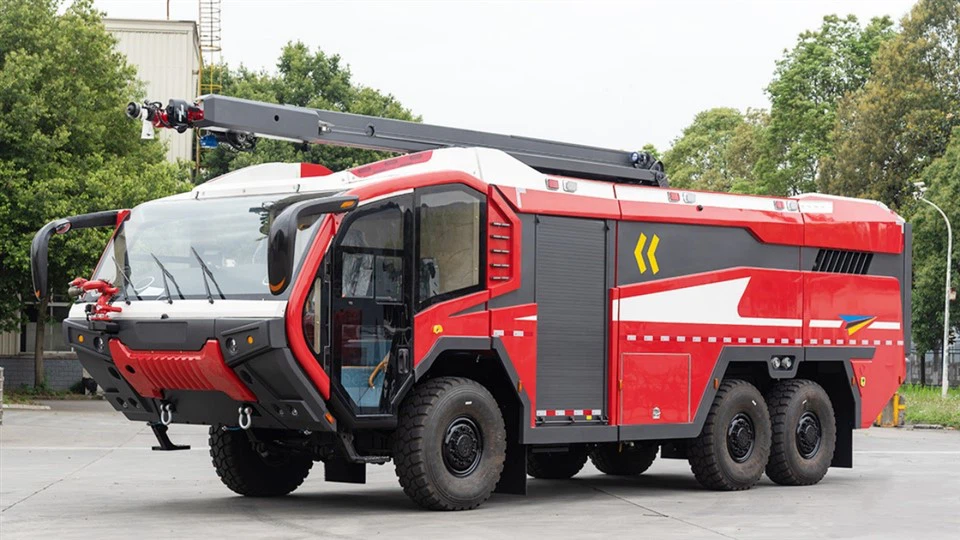When it comes to heavy-duty transportation, the 15 ton truck stands out as an essential vehicle. Whether for construction, moving goods, or other logistical needs, having a solid understanding of this truck’s capabilities, specifications, and practical applications can make a significant difference in efficiency and productivity.
What is a 15 Ton Truck?
A 15 ton truck, typically classified as a medium-duty vehicle, is designed to transport larger loads than standard trucks. It generally can carry a payload capacity of approximately 15,000 kilograms or 33,000 pounds. These trucks are used in various industries, such as construction, logistics, and municipal services.
Key Features of a 15 Ton Truck
- Engine Specifications: Most 15 ton trucks are equipped with diesel engines that offer high torque for power and fuel efficiency.
- Payload Capacity: Designed to handle up to 15 tons, they can effectively transport heavy machinery, construction materials, and bulky goods.
- Size and Dimensions: Typically, these trucks are around 20 to 25 feet in length, providing ample storage space without being overly cumbersome on the road.
Types of 15 Ton Trucks
15 ton trucks come in various configurations, tailored for specific applications. Here are some common types:
Box Trucks
Box trucks, also known as cube vans, are enclosed trucks with a rectangular cargo area. They are often used for transporting furniture and other goods that require protection from the elements.
Flatbed Trucks
Flatbed trucks feature an open bed design, making them ideal for carrying heavy or oversized items, such as construction materials or machinery.
Dump Trucks
Dump trucks are specially designed for transporting loose material, with a mechanism for unloading the cargo by tipping the bed.
Example of Usage
A construction company might use a 15 ton dump truck to transport gravel and dirt to a site, tipping the bed to unload materials quickly.
Advantages of Using a 15 Ton Truck
The use of a 15 ton truck in business operations offers several benefits:
Greater Payload Capacity
15 ton trucks allow businesses to move heavier loads efficiently, reducing the number of trips needed and saving time.
Versatility
With different types available, these trucks can cater to a wide range of needs—be it moving goods, transporting equipment, or waste disposal.
Cost-Effective
Using a single 15 ton truck for a large load can often be more cost-effective than deploying multiple lighter vehicles.
Choosing the Right 15 Ton Truck
When selecting a 15 ton truck, consider the following factors:
Intended Use
Identify how you plan to use the truck: will you transport goods, building materials, or machinery? This affects your choice of truck type.
Fuel Efficiency
Look for models known for their fuel efficiency, as this can significantly impact operating costs.
Maintenance and Reliability
Select a brand known for durability and ease of maintenance, as a reliable truck minimizes downtime.
Maintenance Tips for 15 Ton Trucks
Routine Inspections
Perform monthly inspections of brakes, tires, and fluid levels to catch potential issues early.
Keep it Clean
Regular washing helps prevent rust and damage, especially in harsher weather conditions.
Follow Manufacturer Guidelines
Adhere to the recommended service schedule outlined in your truck’s manual for optimal performance.
The Cost of Owning a 15 Ton Truck
| Cost Component | Estimated Monthly Cost |
|---|---|
| Financing/Lease Payment | $400 – $800 |
| Insurance | $200 – $400 |
| Fuel | $300 – $600 |
| Maintenance | $150 – $300 |
| Licensing and Taxes | $50 – $100 |
Safety Considerations When Operating a 15 Ton Truck
Driving a 15 ton truck comes with specific safety considerations:
Driver Training
Ensure all drivers are properly trained and familiar with the truck’s handling characteristics and controls.
Load Distribution
Properly distribute the load within the truck to maintain balance and prevent accidents.
Regular Safety Checks
Conduct safety checks before every trip to ensure all systems function correctly.
Regulations Surrounding 15 Ton Trucks
Different regions have specific regulations regarding the operation and licensing of 15 ton trucks:
Licensing Requirements
In many areas, drivers may need a commercial driver’s license (CDL) to operate a truck of this size.
Weight Limits
Understand local and national weight regulations to avoid fines and maintain road safety.
Environmental Impact of 15 Ton Trucks
The transportation industry significantly contributes to environmental issues. Here are aspects to consider:
Fuel Emissions
Choose modern trucks equipped with cleaner engines to reduce emissions. Look for models that meet or exceed EPA emissions standards.
Alternative Fuels
Consider hybrid or electric options as alternatives to traditional diesel vehicles to improve environmental performance.
Frequently Asked Questions about 15 Ton Trucks
1. What is the maximum payload for a 15 ton truck?
The maximum payload capacity for a 15 ton truck is approximately 15,000 kilograms or 33,000 pounds.
2. Do I need a special license to drive a 15 ton truck?
Yes, many regions require drivers to have a commercial driver’s license (CDL) to operate a truck of this size.
3. How does a 15 ton truck compare to a lighter truck?
A 15 ton truck can carry heavier loads and is better suited for transporting large quantities of materials, while lighter trucks are more maneuverable and better for smaller deliveries.
4. What maintenance is required for a 15 ton truck?
Routine inspections, oil changes, tire rotations, and regular cleaning are essential to maintain a 15 ton truck.
5. Can a 15 ton truck be used for personal use?
While primarily used for commercial purposes, a 15 ton truck can be utilized for personal purposes if needed, such as moving large items or equipment.
6. What are the insurance costs for a 15 ton truck?
Insurance costs can range from $200 to $400 per month, depending on various factors such as driver history, location, and truck value.





